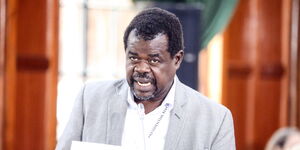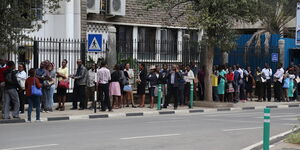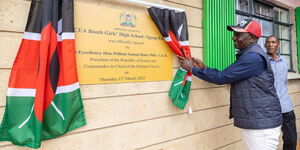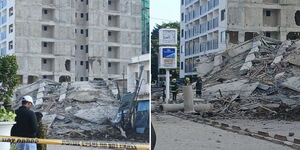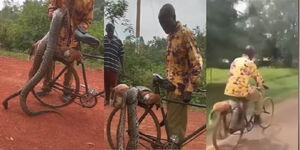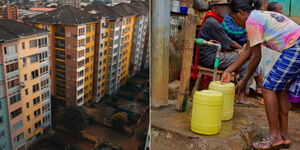A second protestor injured during the Thursday, June 20, demonstrations has tragically succumbed to his injuries.
Evans Kiratu, allegedly struck by a tear gas canister in his groin during the protests, passed away on Friday, June 21.
Kiratu was swiftly taken to Kenyatta National Hospital by a group of well-wishers, where he was treated for severe injuries and internal bleeding. Chris, one of those who helped transport Kiratu to the hospital, confirmed that Kiratu died around 12 p.m. on Friday.
Speaking to Kenyans.co.ke, Chris revealed the distressing details of Kiratu's final moments. He also disclosed that Kiratu had no siblings and his mother expressed a desire to disassociate herself from him. Despite attempts to inform her of her son's critical condition, she remained adamant.
An earlier video on shared on X (formerly Twitter) showed Kiratu confronting a police officer near Nyayo Stadium area. In the clip, Kiratu accuses the officer of hitting his groin. He is seen falling to the ground holding his groin area.
As of now, the hospital and police have yet to officially confirm Kiratu's death.
His passing marks the second fatality linked to alleged police actions during the protests. Earlier, Rex Masai, a protester in his late 20s, succumbed to injuries following an alleged police shooting in the Central Business District.
The incident, captured on camera, has sparked outrage and calls for justice.
The protests that swept across 17 regions of the country on Thursday were a response to the contentious Finance Bill, 2024. Young Kenyans took to the streets in Nairobi, Kisumu, Mombasa, Eldoret, Nakuru, Kericho, Lodwar, Kilifi, Nyeri, Meru, Embu, Nanyuki, Kisii, Kakamega, Machakos, Taita Taveta, and Kiambu.
From early morning, demonstrators voiced their displeasure with the bill. Despite whether their MPs were aligned with the ruling coalition or the opposition, citizens united in their dissent.
The protests, more intense than those on Tuesday, faced a harsh response from mounted police equipped with tear gas, batons, water cannons, and live ammunition.
As they clashed with the police, protestors chanted, carried placards, and sang songs of resistance. The rallying cry, "Occupy Parliament," echoed through the streets, but police forces ensured the crowds were kept away from the National Assembly.
Inspector-General of Police Japhet Koome condemned the protestors' actions, emphasising the importance of maintaining order. "With respect to the Constitution stipulating the right of citizens to assemble, demonstrate and picket, the service will neither condone nor approve efforts to occupy critical government infrastructure or disrupt parliamentary proceedings," he stated.
The aftermath of Thursday's nationwide protests was significant: at least 200 people injured and more than 100 arrested. An alliance of rights groups reported these figures, highlighting the scale of the unrest.

